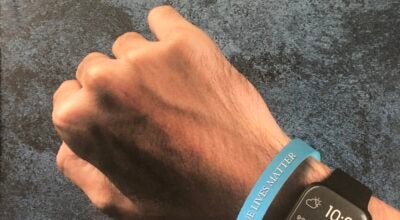My Experiences in Small Town Georgia: An Editorial
Published 10:25 am Tuesday, March 26, 2024
|
Getting your Trinity Audio player ready...
|
I remember when I first went to Leslie. Someone was talking about raising wolf dogs. A lady was expressing extreme curiosity about what it would feel like to be tased, and everyone was trying to convince the police chief that the muscadine thief he was after was a deer.
That was my first city council meeting in Leslie, and one of the first city council meetings I’ve attended. I’ve kept visiting Leslie ever since. City council meetings aren’t always that interesting.
Andersonville left no smaller impression, albeit a very different one. I’ve heard some people describe the town as haunting, but ghostly isn’t the word I’d use. The graves never gave me a feeling of dread, but I could almost believe, if I stayed there too long, a portal might open up and I might find myself in some harrowing adventure from the past. The memory of reenactor’s cannons and the woods that surround the town build upon the feeling, as does the Drummer Boy Civil War Museum. The curator does a good job of strengthening the experience, though occasional reminiscences of her days in a band helps me to make the journey back to the present.
Plains gives a different feeling entirely. Its history is a history of the Nation, with its nation-wide visitors and peanut silos. Jimmy Carter’s story makes the rare yet perfect representation for the potential of every small town to become anything, even the hometown for the next president. It represents the potential of every American town and every American, all while maintaining its own uniqueness.
The first person I ran into on my first trip to Plains was a puny political button salesman, who kept his customers and reporters entertained. He even entertains local reporters, who rarely ask for interviews or buy anything other than discounted books.
Americus, I feel, is different from its neighbors, not least due to its size. It helped me decided to take the job at the paper, because, like all civilized places, it had a coffee shop. No locale really seems to have much civic life without one when you’re single. If I had to describe Americus as a person, I would imagine a little boy, proud to be wearing his grandfather’s carefully preserved suit and coat, looking the part of a period gentleman, unaware of a few rips and mud stains.
I think that a more apt view of Americus is that the city really cares about itself, which is true of the smaller towns. But for an outsider, it becomes much more quickly apparent on a larger scale. There are lot of people, non-profits, social clubs, and businesses that committed to taking care of the City and seeing it flourish. There are too many who welcomed me when I first came to count, whether it be an invitation to Kiwanis or a warm welcome at church.
The City’s desire to care for itself has probably been responsible for me finishing more than one article I could have cast aside when busy. I might have been too tired to care, but I knew someone in Americus would. It’s probably the most endearing quality a city could have.
I know you think, by now, I’ve forgotten Desoto. Admittedly, it took me quite awhile before I made a visit. But the couple of articles I have done about Desoto have already given the impression that it’s impact is much larger than it’s size would suggest. I’ll have to wait until the next big story involving Desoto to make my sketch complete.



